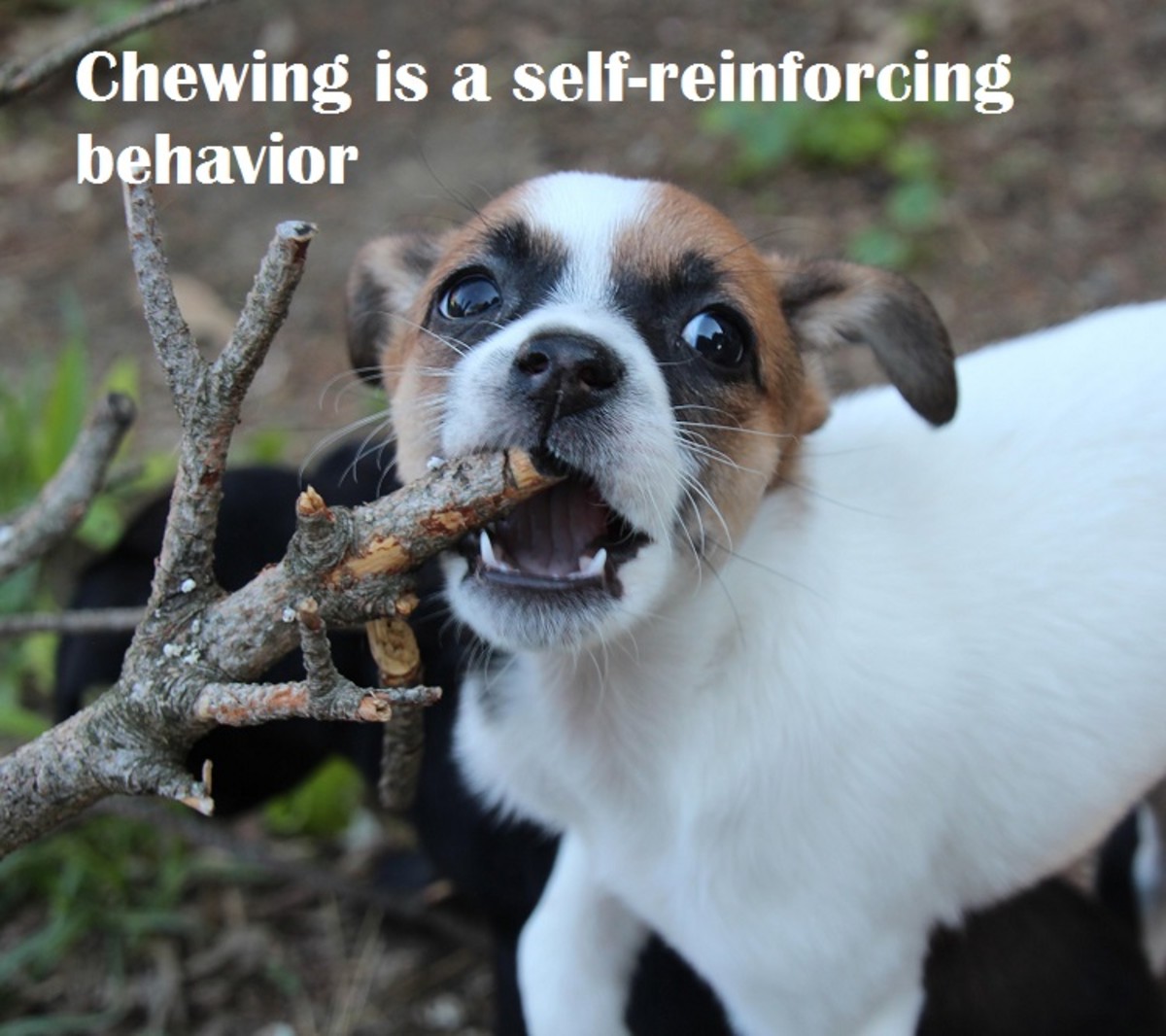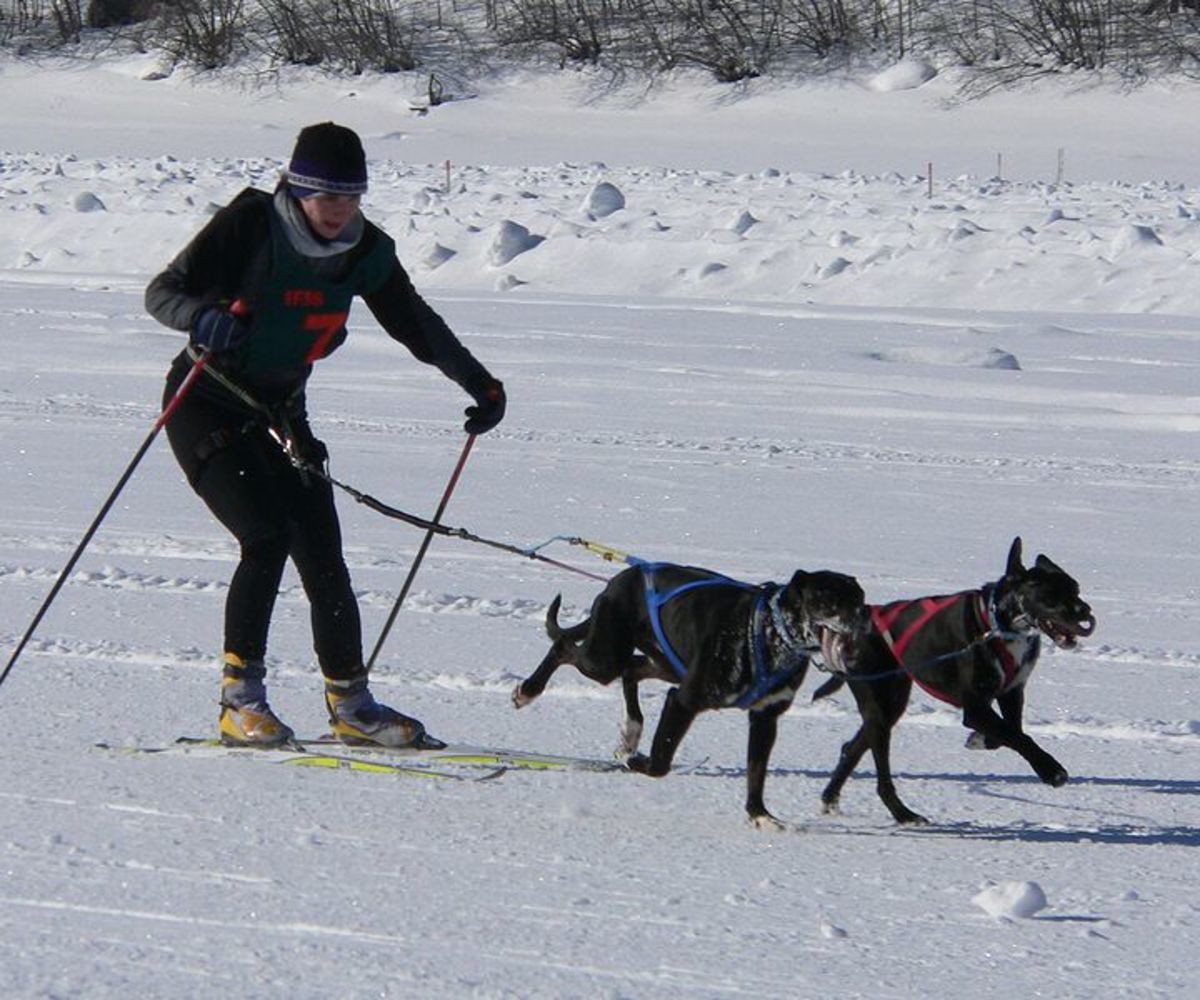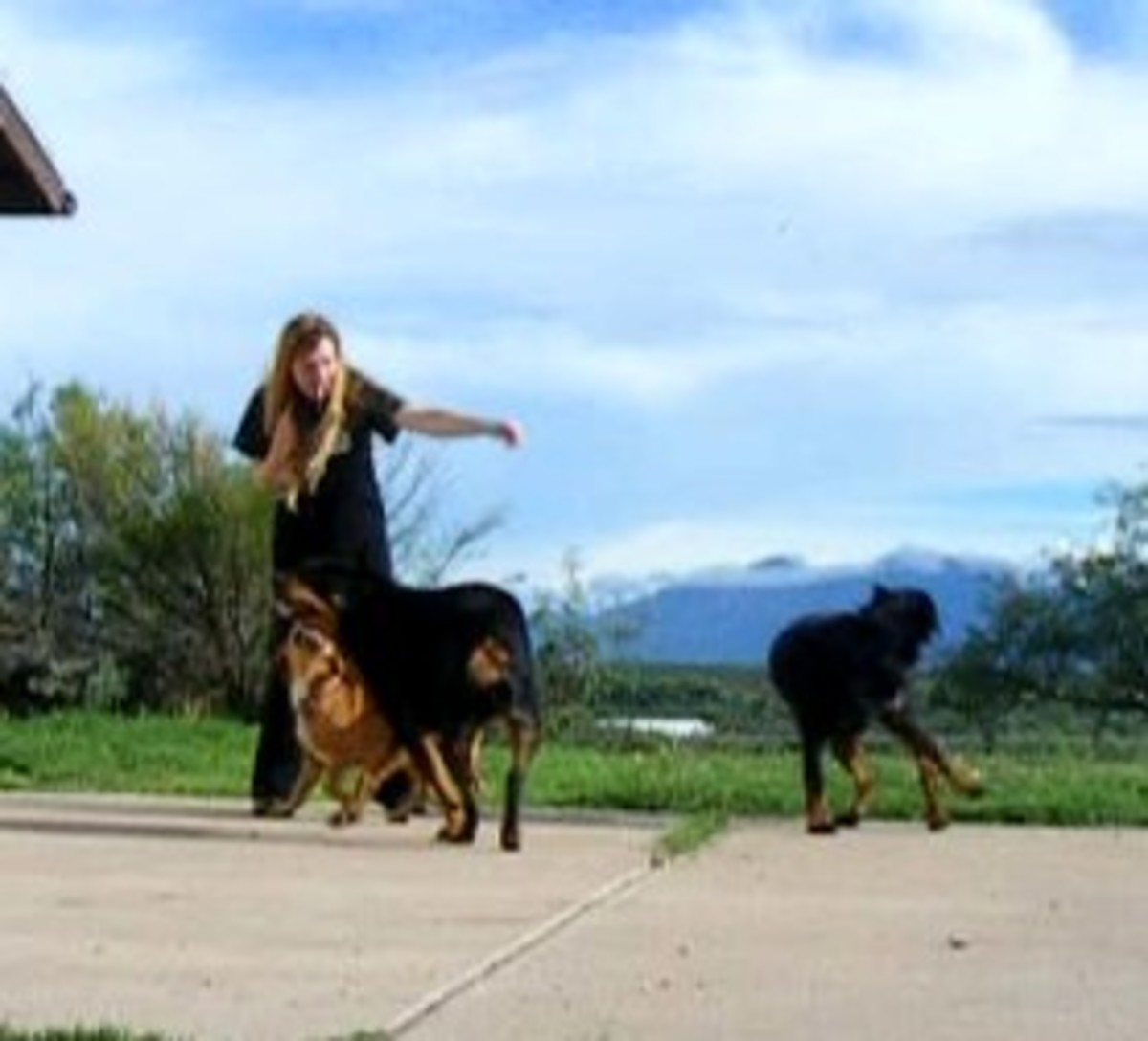A Bone of Contention in the World of Dog Training

The Canine Outlook
There's an old joke about the differences between the canine and feline perspectives on humanity.
Here's how a dog thinks: My human feeds me, and loves me, and takes care of me. He must be a god!
Here's how a cat thinks: My human feeds me, and loves me, and takes care of me. I must be a god!
There's a kernel of truth in that. Some dog owners feel obligated to live up to a certain image.
The human must always be the boss. The alpha issue has led to conflict between old-school dog trainers and those who strongly emphasize positive reinforcement.
That difference of opinion came up in a question that I raised about eye contact between dogs and the owners who are attempting to train their dogs. I appreciate the knowledgeable answers that I received.
I did notice some raised hackles on that Q&A session. I'm glad that nobody earned the prestigious Godwin Award!
Most dog owners are somewhere between the two opposite poles of dog training: coercive training vs. positive reinforcement. They read a book, watch a few videos, or talk with friends who are knowledgeable on the subject. Then they muddle their way through the human-canine relationship. If they find an approach that works for them and their dogs, they're happy with it.
The relationship between you and your dog is not egalitarian. When you go out for neighborhood walks with your canine friend, you'll probably put him on leash. Even if he's a super-smart Border Collie, there's no way for you to explain that chasing cars is extremely dangerous. And you don't want him to learn that lesson the hard way. On the other hand, you probably don't want to have a robo-dog, who regards you as a lunatic, and whose unwavering obedience is based upon fear. If you think of your dog as a friend, you may want to think of yourself as first among equals.
I'm not current on the major dog training studies, but it's more sporting to weigh in as a unbiased outsider.
What is an alpha, anyway?
In the wild, wolf packs are usually family units. From the perspective of a young fully-grown wolf, following the lead of one's parents makes good sense. The parents have more experience. They know the best hunting and foraging areas. They know what's safe to eat. They also know which prey animals are safest to attack.
The parents have breeding rights, and their grown offspring are supposed to practice abstinence until one of the parents dies (or becomes infirm). I'm not sure what happens at that point. Inbreeding seems unlikely. Do the individual pack members go their own ways, to seek out mates and vacant territories?
I remember seeing a documentary about the wolves that had been reintroduced to Yellowstone. One interesting detail was that a grown female wolf had killed her littermate sister. Apparently there is some alpha-seeking behavior in wild wolves.
On the other hand, Nature documentaries are notorious for staged footage. Example: the lemmings 'jumping' off cliffs in Disney's 1958 White Wilderness.
Alpha-seeking behavior is more pronounced in captive populations of dogs. The alpha male has fought his way to the top of the heap. He claims exclusive breeding rights, and insists on having first crack at the food when it is served.
If there are clashes in the wild, a wolf is free to leave the pack. In captivity, that is not an option. Hence there are more power struggles when multiple dogs or wolves live together in captivity.
What would it mean for a human to be alpha to his dog?
For dogs and wolves in captivity, alpha status is mostly about food and breeding rights. Let's see. If you're a dog owner, you're automatically in charge of the food.
If you aspire to be alpha in your relationship with your beloved pet, does that mean that you, as a human, are claiming exclusive mating rights with your dog? I don't think so. What people say is not always what they mean.
Are dogs pack animals?
Dogs are definitely social animals. However some dogs, who are weaned and separated from their mothers too early, miss an important part of their mental and emotional development. (Yes, dogs have emotions.) Although they may bond with their adoptive humans later on, they don't understand that they are dogs! They may not get along with other dogs for that reason.
This is the exception that proves the rule. Dogs do have strong social needs. In some cases, it's for the company of other dogs. In other cases, it's for human companionship. And often it's for both.
The claim that dogs and wolves are pack animals, and not merely social animals, implies that they need to have a firm understanding of who is the head honcho. And if clear leadership is missing, the dog will attempt to take charge. Some individual dogs are like that, just as some people are. But it's not fair to paint all dogs with the same broad brush.



Render unto Cesar
An alpha-oriented label on a dog training method can be a euphemism for a coercive, harsh, punishment-based approach. Most dog owners use a mixture of affection, positive reinforcement, and coercion. Cesar Millan falls into that in-between category.
He feels that it's important for a dog owner to be dominant. He also punches dogs. See video at bottom. Thanks, Adrienne!
A second aspect of dominance is what Cesar calls "calm-assertive energy" (CAE). Dogs can sense our emotional states from observing our body language, from listening to our breathing, and from taking note of the way that we smell at the moment.
I have CAE, although not to the extent that Cesar does. Almost always, I know where I stand with big dogs. And they almost always know that I mean no harm. On hikes, off-leash dogs either ignore me or act in a friendly manner. I think that this also reflects favorably on the quality of socialization that most hikers provide for their dogs.
I agree with Cesar that CAE on the part of a dog owner is a quality that 's beneficial for the canine-human relationship. I disagree with Cesar about the extent to which CAE can be cultivated. It sounds too much like: Fake it 'til you make it.
I'm slightly miffed that Cesar is billed as a 'dog whisperer'.
Although Cesar is very talented, he's essentially a synthesizer, rather than an innovator. And Cesar Millan is no Monty Roberts.
Monty's nonviolent training methods are based on his detailed observations of horse behavior, and on his extraordinary ability to empathize with horses. For example, the body language of horses, which Monty calls Equus, plays a central role in his approach to taming wild horses.
Shortly after Monty's first book, The Man Who Listens to Horses, came out, I remember thinking: There are thousands of unacknowledged Horse Whisperers out there. If you want to join that exclusive club, all that you need do is to smoke cigarettes for 20 years!
Just kidding. Bad pun. I have great respect and admiration for Monty Roberts.
Anyway, some dog owners who achieve a good living arrangement with their dogs, describe their training style as being alpha-oriented. However that is not necessarily an accurate description. In practice, most dog owners use both approaches.
Cesar also emphasizes the importance of giving your dog the right amount of exercise. A moderately tired dog is a happy dog. And some breeds of dogs need more exercise than other breeds. For example, Dalmatians were bred for running long distances with horse-drawn carriages. A daily 20-minute stroll does not even come close to cutting the mustard with this naturally athletic dog breed.

Go hiking with your dog
Obviously, the right amount of hiking can be fun and healthful Quality Time for you and your dog to share. It's also an opportunity for your dog to learn that new people are mostly friendly. More to the point: Your dog will see you in a new light.
Fido will take note of the scent-markings of Coyotes, Black Bear, and other animals. He'll be very impressed with the fact that you don't care whose territory you trample upon while you're hiking up the trail together. What chutzpah! Ironically, your underdeveloped human olfactory sense will inspire his confidence in your ability as a protector. And that will be a good thing for your relationship.
Positive reinforcement is TQM for dogs and their owners
Management By Objectives is an old-school philosophy of business administration. MBO is very top-down. It assumes that workers are inherently lazy, and that it's necessary to ride herd on them, in order to maintain productivity. Unfortunately that philosophy tends to create an atmosphere of fear.
Yes, fear can be a powerful motivator. But sometimes the motivation is to cut corners, to CYA, and to pin blame on others, rather than being productive.
On the other hand, Total Quality Management, championed by W. Edwards Deming and A.V. Feigenbaum, seeks continuous improvement, to build long-term customer satisfaction, to empower workers, and to minimize fear. Other things being equal, a company that embraces TQM will have a small competitive advantage over a traditional MBO company.
Traditional dog training is similar to MBO. Yes, you can get a dog to do what you want. But harsh training methods can take its toll on your relationship with the typical family dog, who truly wants to be your best friend. Most dogs are hard-wired for what Monty Roberts calls Join-up.
Yes, some adopted dogs have endured years of abuse at the hands of their previous owners. These particular dogs need extra TLC, not boot camp.
Dog training that emphasizes positive reinforcement, like marker training, is more like TQM. You can accomplish your training goals, without straining the relationship. Yes, it may take a bit more homework, time, and planning. But reward-based training, unlike coercion-based training, is Quality Time. And that's something that you both want in the first place, isn't it?



